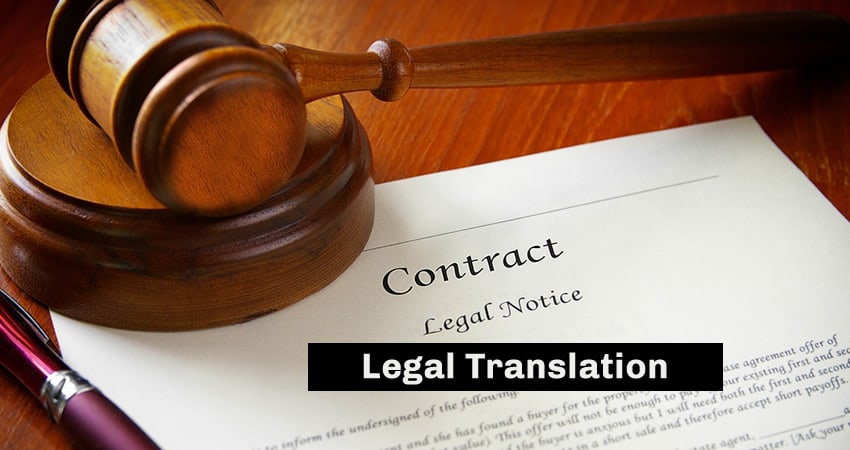Are you in need of reliable and precise Legal Translation Services in Dubai? In a dynamic environment, it is crucial to ensure legal clarity and precision when translating legal documents. Look no further! As a global business hub, Dubai has a diverse community of businesses and individuals from various linguistic backgrounds.
The Value of Dubai’s Legal Translation Services in Dubai
In the globalized business landscape of Dubai, accurate translations are essential. The city’s multicultural corporate environment emphasizes the need for precision in legal documents. Contract misinterpretations may harm business relations, while inaccuracies in immigration or legal papers can lead to disadvantages or financial losses.
Professional Legal Translation services in Dubai are crucial for navigating the intricacies of local and international laws, preventing costly mistakes, and ensuring legal clarity. These services bridge language gaps, contributing to the smooth functioning of businesses and individual lives in the city.
The Role of Translation Services in Legal System
Professional services play an indispensable role in Dubai’s legal system. Accurate translation of legal documents, contracts, and court proceedings is paramount with the city’s cosmopolitan landscape and many languages spoken.
- Skilled translators proficient in language and legal terminology are often called upon to translate critical documents to ensure accuracy and coherence.
- Court interpreters in Dubai play a crucial role in providing real-time translation in courtrooms, ensuring every party fully understands the proceedings.
- Moreover, translators assist in international legal correspondence, translating international laws and regulations for local comprehension and vice versa.
- Their contribution facilitates seamless global legal interactions, fostering mutual understanding and cooperation.
These services, therefore, go beyond mere translation – they provide the right to a fair trial, safeguarding each party’s interests. Hence, legal translation services are indeed the unsung heroes of Dubai’s legal system, making it accessible, understandable, and equitable for all.
Key Considerations for Legal Translation
Effective translation requires careful attention to critical considerations to ensure accuracy and maintain legal integrity.
- Linguistic precision is paramount, demanding a deep understanding of legal terminology and the context in both the source and target languages.
- Cultural nuances are significant, as legal systems and practices vary widely across jurisdictions.
- Engaging professional translators with expertise in the specific legal field is crucial, ensuring they possess the necessary knowledge to handle complex legal documents.
- Adherence to confidentiality and privacy standards is essential, mainly when dealing with sensitive legal information.
- Additionally, legal translators must stay abreast of evolving laws and regulations in source and target languages to provide up-to-date and precise translations.
A meticulous approach that combines linguistic proficiency, legal expertise, and cultural awareness is fundamental for successful valid translation.
Challenges Faced in Legal Translation
Translation is a complex endeavour to deal with challenges. The linguistic intricacies, marked by specialized legal terminology, pose the initial hurdle. Here are some challenges.
1. Linguistic Complexity and Legal Terminology
Legal documents are characterized by intricate language and specialized terminology. Translating documents accurately requires a deep understanding of source and target languages and a comprehensive grasp of legal terms in multiple jurisdictions.
2. Cultural Nuances and Legal Systems
Cultural differences and varying legal systems add an extra layer of complexity to translation. What may be legally precise in one jurisdiction may not be equivalent in another. Translators must navigate these nuances carefully to ensure that the translated document accurately reflects the intended legal meaning.
3. Confidentiality and Ethical Considerations
Legal documents often contain sensitive information, requiring translators to adhere to strict confidentiality standards. Maintaining the privacy and integrity of legal content is crucial. Translators must be aware of ethical considerations, ensuring that they handle legal documents with the utmost discretion and professionalism.
Unlocking the Benefits of Legal Translation
In exploring the benefits of legal translation, the following key aspects underscore its indispensable role in fostering effective cross-cultural communication and legal compliance.
1. Ensuring Legal Accuracy and Clarity
Legal services play a pivotal role in ensuring the accuracy and clarity of legal documents. Translators with expertise in legal terminology and an understanding of different legal systems contribute to precise translations. This accuracy is crucial for preventing misunderstandings, disputes, and potential legal complications that may arise due to language barriers.
2. Facilitating International Business and Legal Transactions
In the globalized business landscape, translation facilitates seamless international transactions. Businesses engaging with partners or authorities from different linguistic backgrounds rely on accurate translations for:
- Contracts
- Agreements
- Legal Documents
3. Complying with Legal and Regulatory Requirements
Translation is essential for compliance with legal and regulatory requirements in diverse jurisdictions. Whether it involves immigration documents, contracts, or court submissions, accurate translations are often a legal prerequisite. Professional services help individuals and businesses to navigate the intricacies of local and international laws.
Read More: Interpreters in Dubai: Your Gateway to Efficient Communication

